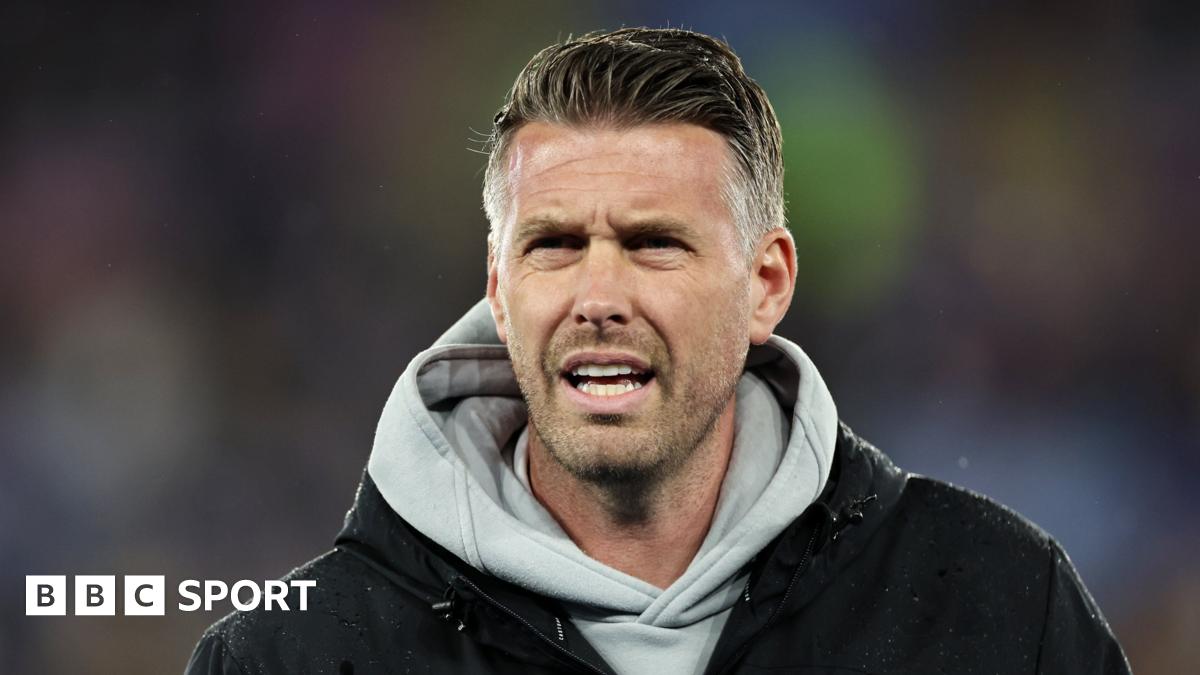Middlesbrough reject Wolves proach for Edwards

Middlesbrough Reject Wolves Approach for Manager Rob Edwards
Middlesbrough have rebuffed an official approach from Wolverhampton Wanderers to speak with their manager, Rob Edwards. The Premier League strugglers, currently rooted to the bottom of the table, are searching for a new head coach following the dismissal of Vitor Pereira earlier this week. BBC Sport understands that Wolves made initial contact with the Championship club on Thursday, expressing their interest in Edwards, but Middlesbrough have firmly rejected the request, signaling their intent to retain his services.
Wolves' Managerial Search Hits Snag
Wolves' pursuit of Edwards follows the sacking of Vitor Pereira, who was relieved of his duties after a disastrous start to the season. The club has endured a ten-game winless streak, leaving them languishing at the foot of the Premier League table. Edwards, who previously managed Luton Town to Premier League promotion, quickly emerged as a leading candidate alongside former Wolves player Gary O'Neil. However, O'Neil withdrew from consideration on Monday, leaving Edwards as the perceived frontrunner. Middlesbrough's firm stance now throws Wolves' managerial search into further disarray.
The Championship side, currently sitting third in the league and pushing for promotion, are understandably reluctant to lose their manager mid-season. Edwards, appointed in June on a three-year deal, has quickly transformed Middlesbrough into promotion contenders. It is believed that Wolves would have to pay a significant compensation fee to secure his release, a factor that may be contributing to the current impasse.
Expert Analysis: Middlesbrough's Strong Position
Football finance expert, Dr. Dan Plumley from Sheffield Hallam University, commented on the situation: "Middlesbrough are in a very strong negotiating position here. Not only is Edwards under contract, but the club is also performing well on the pitch. This allows them to demand a higher compensation fee, potentially pricing Wolves out of the market. From Middlesbrough's perspective, stability and a continued push for promotion are paramount, and losing their manager at this stage would be a significant setback."
He further added, "Wolves, on the other hand, are desperate. Their precarious league position means they need to act quickly, but they also need to be mindful of not overpaying for a manager who may not be the right fit. This situation highlights the power dynamics between clubs in different leagues and the complexities of managerial appointments."
Edwards' History with Wolves and Rapid Rise
Edwards has a history with Wolves, having made over 100 appearances for the club between 2004 and 2008. He later served as a coach and even briefly as interim manager in 2016 following Walter Zenga's dismissal. His managerial career has been a whirlwind. After a spell at Forest Green Rovers, he moved to Watford, but was sacked after just 11 games. He then joined Luton Town, leading them to an improbable Premier League promotion before leaving during the 2024-25 season.
His appointment at Middlesbrough came after the departure of Michael Carrick. Edwards has quickly implemented his own style of play, transforming Boro into a dynamic and attacking force in the Championship. His success at Riverside Stadium has undoubtedly attracted the attention of Wolves, who are desperate for a manager capable of turning their fortunes around.
Wolves' Desperate Situation
Wolves' current predicament is dire. They are eight points adrift of safety and face a daunting task to climb out of the relegation zone. Their next match is against Chelsea at Stamford Bridge on Saturday, a game that could further compound their woes. The club's ownership will need to act decisively to resolve the managerial situation and provide the new manager with the resources needed to strengthen the squad in the January transfer window.
The Wider Context of Managerial Instability
The rapid turnover of managers in the Premier League is a growing trend, highlighting the immense pressure on clubs to achieve immediate results. The financial rewards of staying in the top flight are so significant that clubs are often quick to pull the trigger on managers who fail to meet expectations. This can lead to a climate of instability and a lack of long-term planning, ultimately hindering a club's progress.
As Wolves search for a new manager, they must consider not only the individual's tactical acumen but also their ability to build a sustainable culture and foster a sense of unity within the squad. The challenge is significant, but finding the right person is crucial to their survival in the Premier League.
Related topics: Middlesbrough, Football, Wolverhampton Wanderers
Originally sourced from: BBC Sport Football
